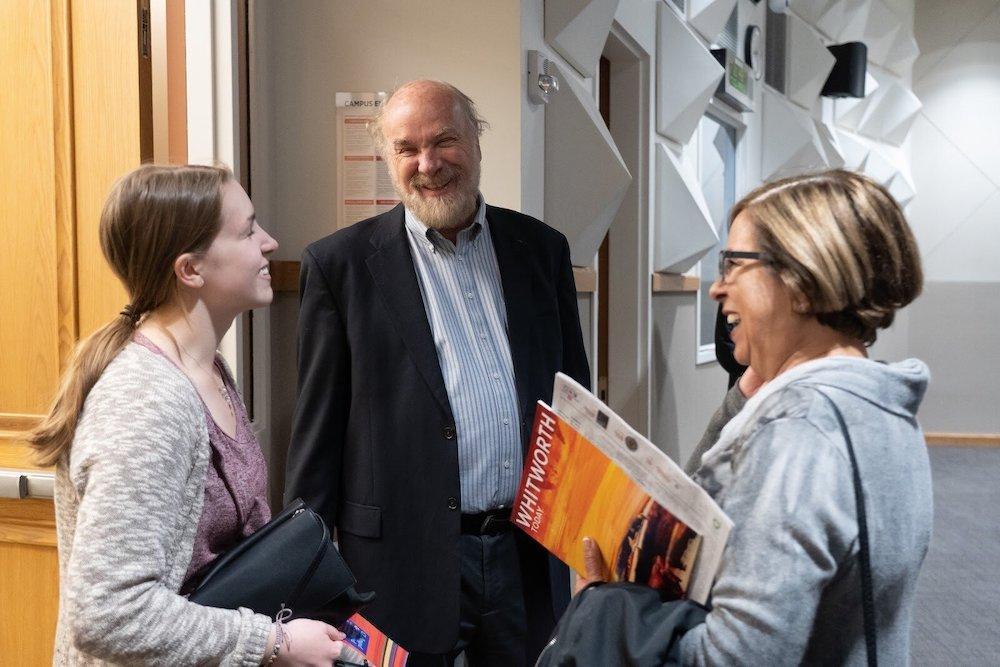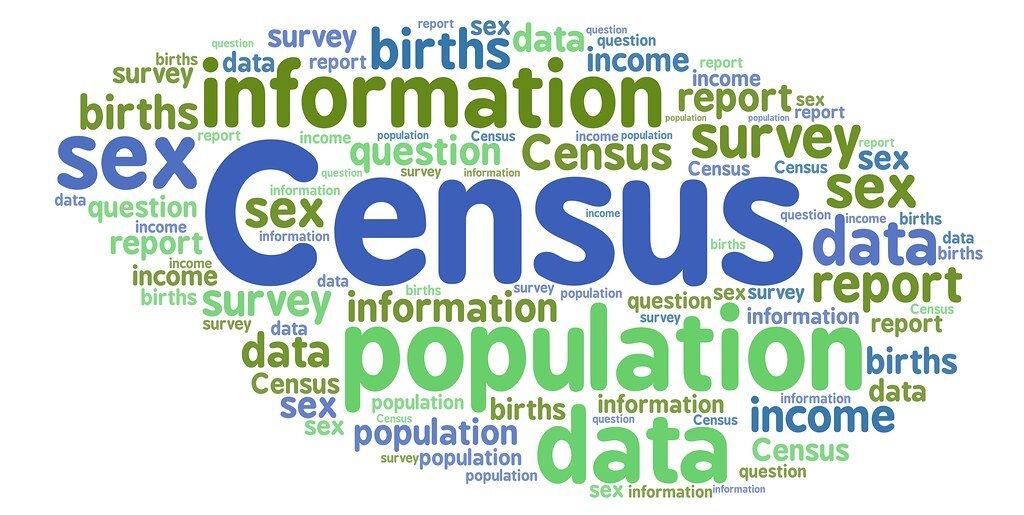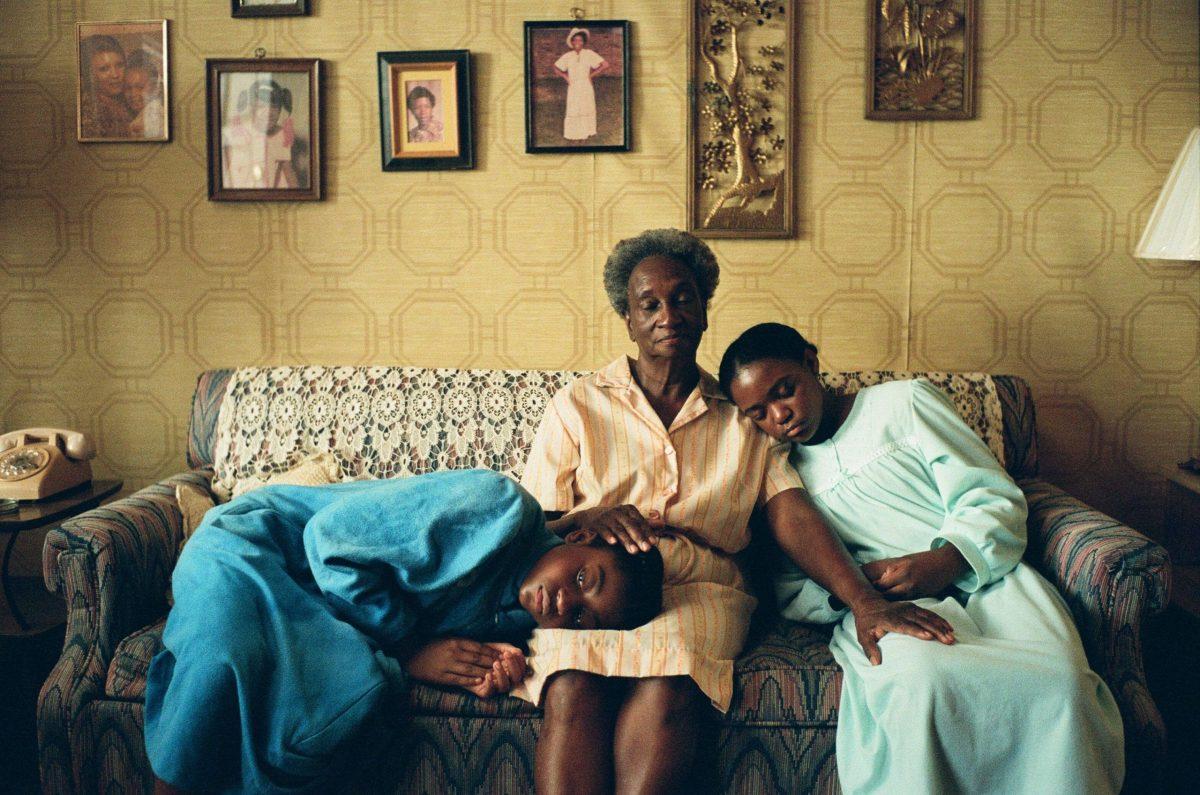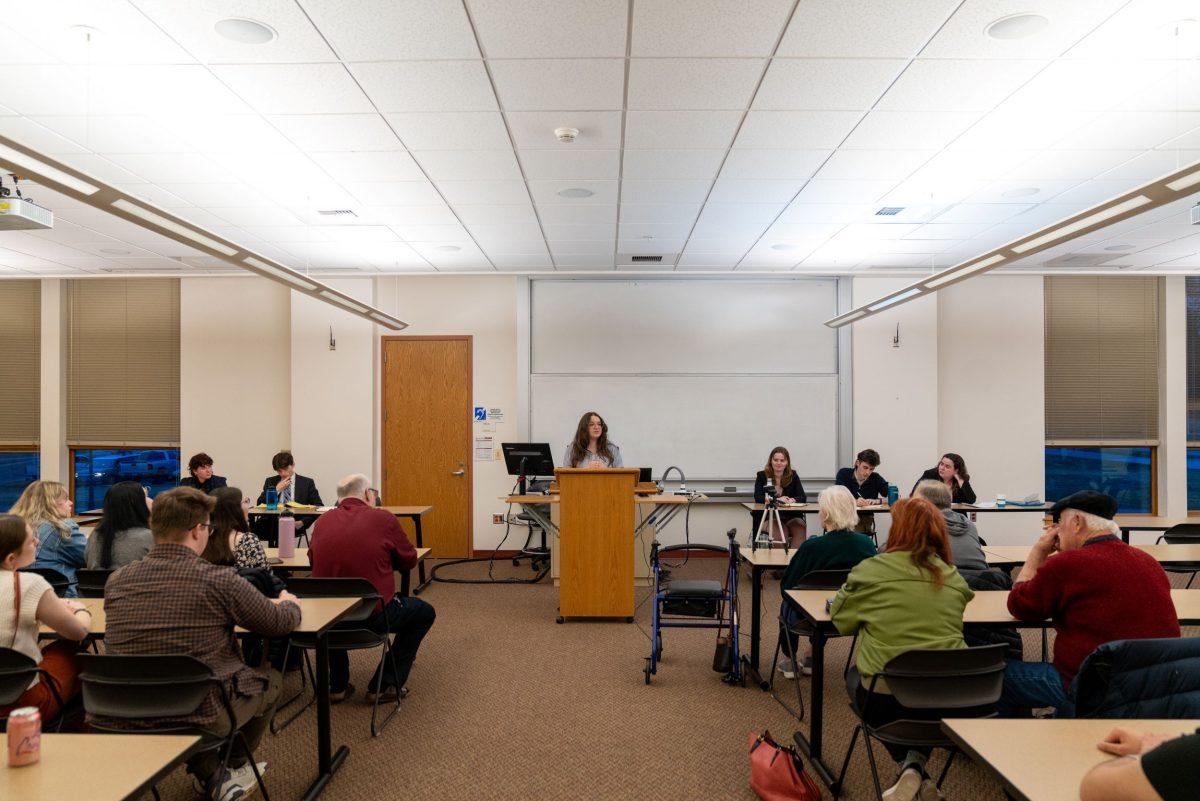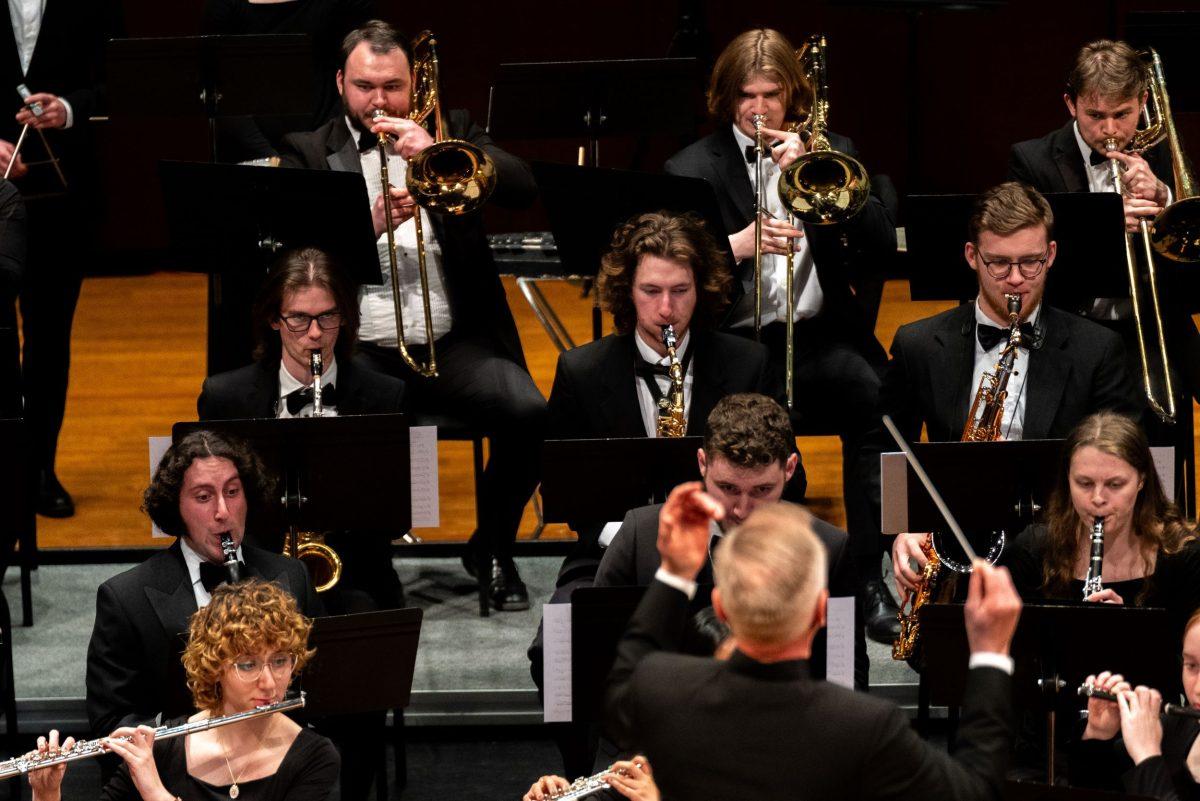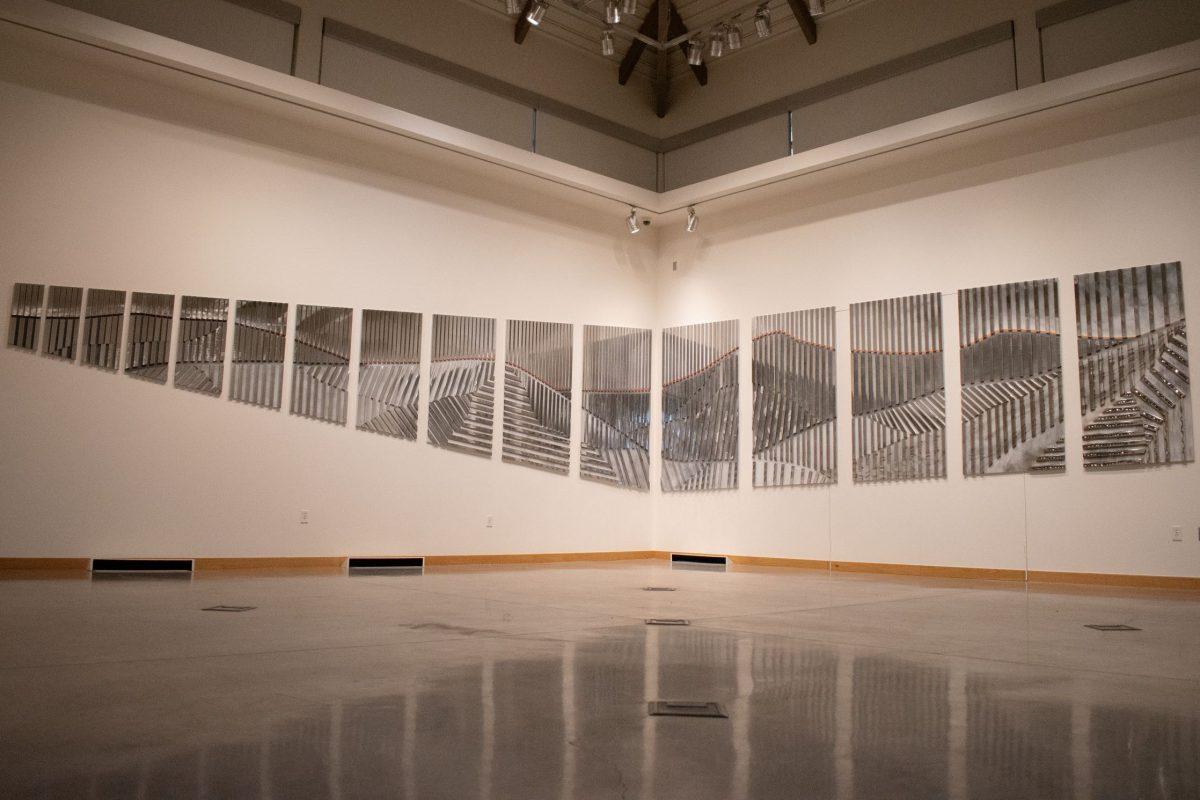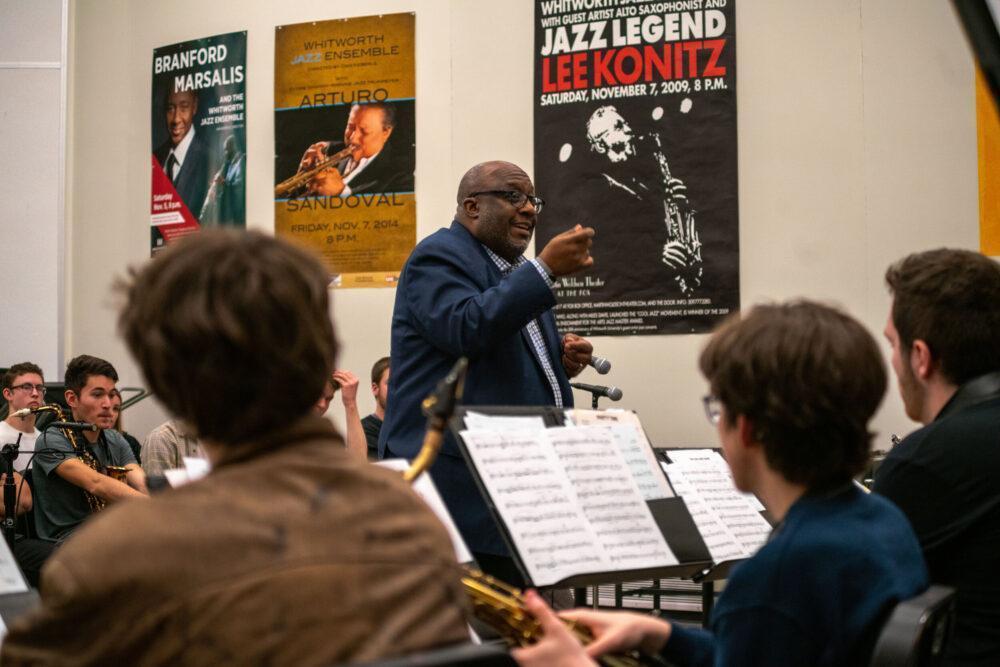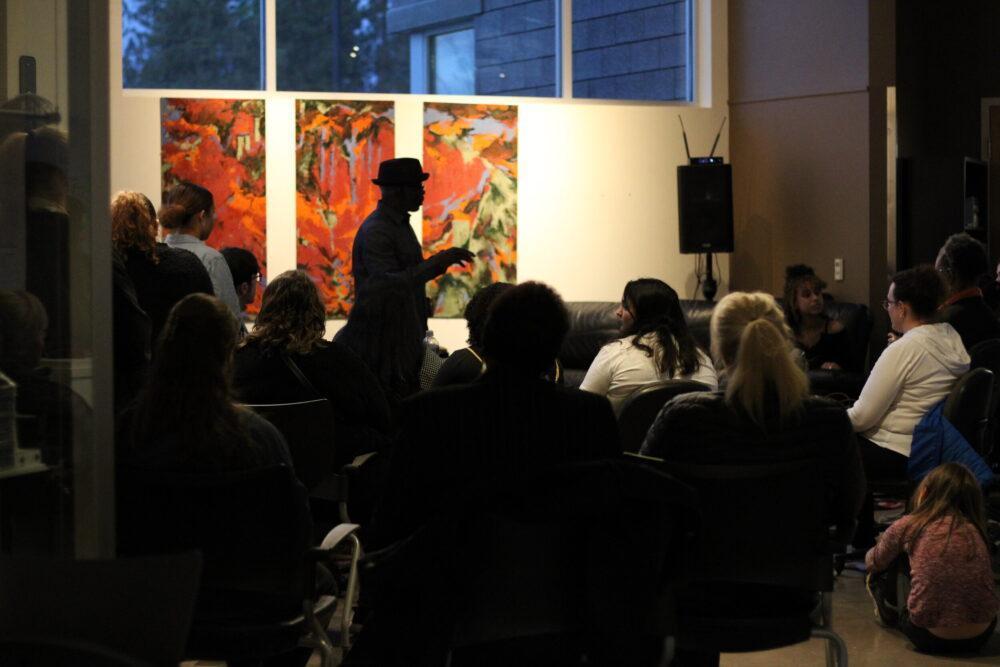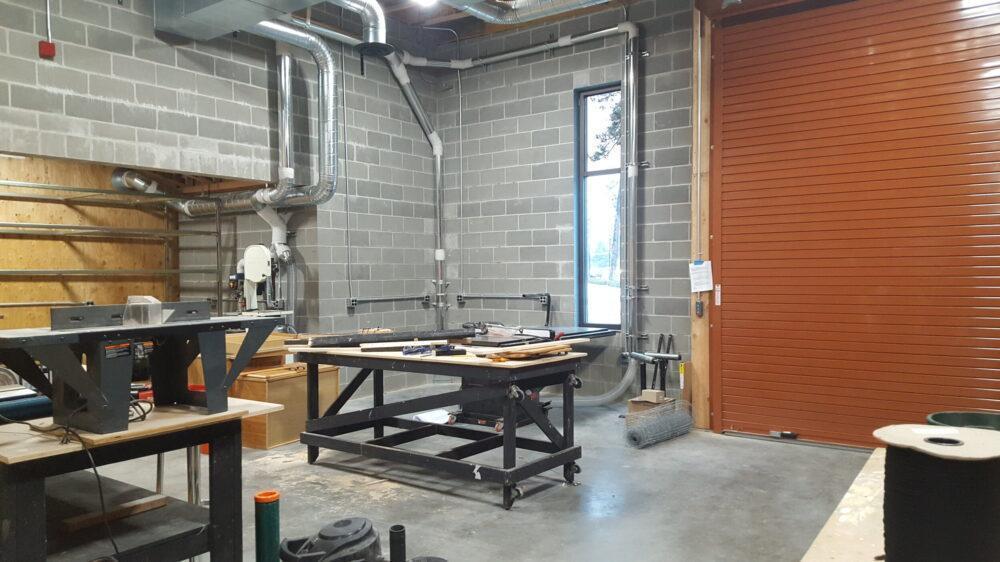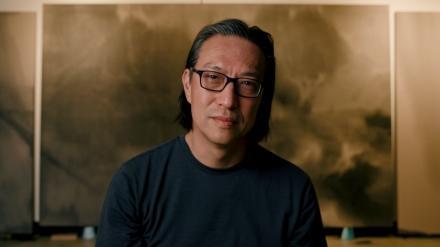
Artists are just like honey bees, according to Makota Fujimura. They fly into the margins seeking beauty and pollinating it. Bees don’t want to sting, or else they will die. Instead, like artists, their goal is to give back to their hive and tell others to go out and pollinate beauty.
Fujimura, an acclaimed artist, writer and speaker, used this metaphor as one way of explaining his concept called “culture care.” The Japanese-American artist spoke at Whitworth on October 3 during chapel and at an evening session.
His bee metaphor continued: unfortunately, toxic pesticides are harming bees, like the toxic environment society lives in with the battles of culture wars. This toxicity can cause an entire system of ecoculture to collapse. What bees, and society, need are beekeepers who understand and care for the fragile creatures. According to Fujimura, Whitworth can become a “pollinating colony” of beekeepers, urging others to create beauty.
Society is a time of discord and polarization. Fujimura described that the culture wars occuring is detrimental to democracy. There is such a polarization of ideologies that nobody will be able to talk to each other anymore.
“The cultural war has decimated our political and public dialogue,” Fujimura said.
To address this, Fujimura said we must shift away from the metaphor of war, where we shoot at the opposition and desperately defend our beliefs. Instead, he proposed the metaphor of a garden. In this scenario, neighbors have a patch of soil that they agree to take care of with each other. Although there may be disagreement about what to plant or how to garden, they must agree to disagree in order to cultivate the land together and make something beautiful. Soil is a metaphor for culture, and these neighbors tend it together and eventually will start learning about the other’s culture.
This is what culture care is: an attempt to change the metaphor. If we do not rewire our brains, we will be constantly fighting culture wars, said Fujimura. Nobody can win culture wars, and we end up demonizing the other side. However, we don’t have to have wars if we have actual beauty in our lives.
Fujimura ties in culture care with his Christian faith, and described all faith as divergent and generative.
“[Christians] are creatures of imagination that have been given this birthright from the creator God himself. We have been marked with the sign of this imaginative freedom, sanctified freedom, that can allow us to think so creatively, so imaginatively,” Fujimura said. “What we can do is walk into this adventure called life, knowing that God is for us, is not against us, knowing that God can give us the language that can not only fix the world, but to do it like a kintsugi master.”
Kintsugi is a Japanese art that mends broken pottery by using a lacquer mixed with gold, silver or platinum. The art form symbolically correlates with the Christian idea of new creation. In the process of mending trauma, something new is created. Therefore, there is incredible potential in just an ordinary bowl. (Watch Fujimura describing the art of Kintsugi here)
For Fujimura, painting has helped him overcome trauma and darkness in his life. He works out his trauma within the studio, and on one occurrence created a 3 foot long painting without even remembering the process of painting it.
“I’m doing this work because God has given me wings. If I am faithful to the task of cultivating the very little talent that I have, and I work very hard to amplify it and take that risk every time I paint [then I can] do the impossible,” Fujimura said.
Fujimura told artists not to be discouraged when told that they cannot sustain themselves in an art career. Creativity and imagination are irreplaceable, especially in today’s technologically oriented society. Learning to think “nimbally and divergently” will help on-the-spot problem solving, said Fujimura.
Dakota Farrer, a first-year, was appreciative of Fujimura’s encouragement.
“It was impactful when he said, ‘you can make it somewhere as an artist and you’re not confined to a particular place,’” said Farrer. “I like that he just has such a unique view on the entire world.”
Min-ji Ju, a senior exchange student from South Korea, said she thought Fujimura would be talking about art, but was pleasantly surprised when the focus was on culture.
Although some of Fujimura’s lecture was addressed specifically towards artists, his ideas can be applied and explored by all. Fujimura has written a book on the concept of culture care, which can be found here.
For more information about Fujimura, visit his website https://www.makotofujimura.com/

